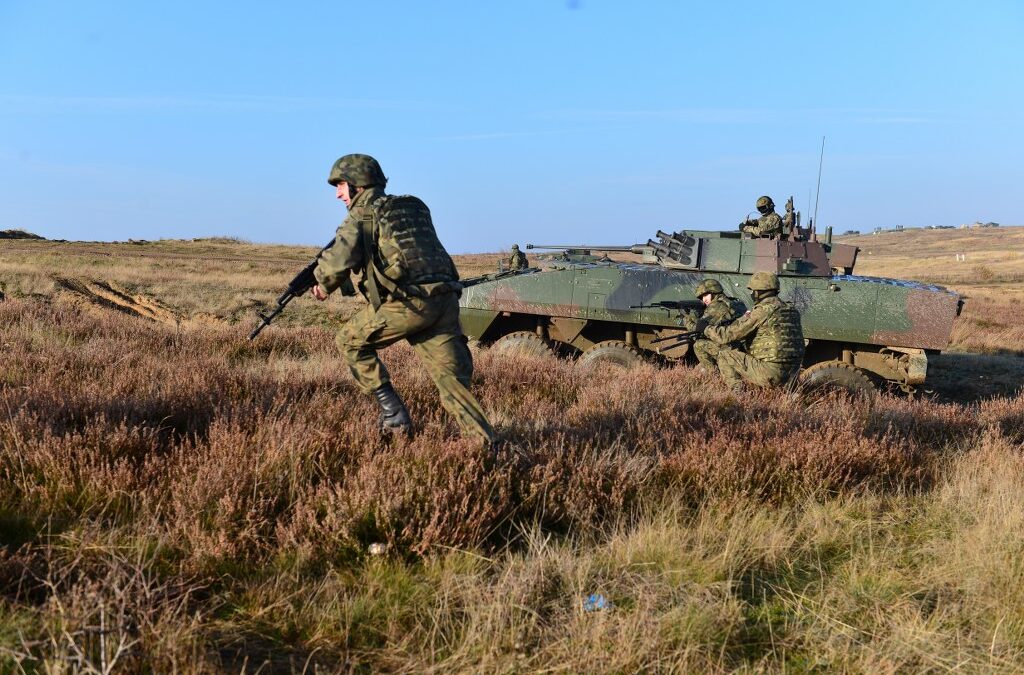Up to 200,000 people can be called up for military exercises in Poland next year, including some who have never put their name forward for service but are deemed to have “useful skills”. However, a senior military official has explained that only a “minimal” number will actually be summoned.
The exercises can last up to 90 days, and failure to attend is punishable by jail or a fine. During that period, reservists receive an army salary, which would in many cases be a private’s pay of 117.13 zloty (around €25) per day.
The pool of people who can be called up are those aged 55 and under who have been through so-called military qualification, which is compulsory for all men turning 19 and during which the candidate’s health category and fitness for military service are determined.
Under a homeland defence law adopted earlier this year, the qualification obligation also applies to women graduating from medical and veterinary schools, as well as from psychology courses.
Poland will increase defence spending to 3% of GDP next year, one of the highest levels in NATO, to protect itself from "voracious imperial Russia".
Its new Homeland Defence Act will also more than double the number of troops serving in the armed forces https://t.co/KlEA1cHOoH
— Notes from Poland 🇵🇱 (@notesfrompoland) March 19, 2022
After it was reported this week that up 200,000 such people could be called up for exercises, Colonel Miroslaw Bryś, the head of the Central Military Recruitment Centre, yesterday sought to explain and play down the reports.
“I assume that it will be the minimum number of people [called up],” he said. “People who have qualifications, have a certified category, but have not been to military training.”
“Here we are talking about specialisations that are very important from the military’s point of view. I mean… doctors, nurses, paramedics, IT specialists, drivers and lawyers. This is a narrow group of people who have specific skills and specific qualifications and whose service in the Polish army would be very useful,” said Bryś.
When asked for a specific number of call-ups, the colonel suggested it could be around 3,000 and that they would have only two days of training to get “familiarised with military equipment”. They would then be “released to the passive reserve”.
Ćwiczenia wojskowe 2023 r. Kto dostanie powołanie do wojska?#wieszwięcej pic.twitter.com/k31opVT3mi
— tvp.info 🇵🇱 (@tvp_info) December 8, 2022
Under the Homeland Defence Act, in force since April 2022, each year the government issues a decree which provides the number of persons who may be called up for active military service or military exercises. The defence ministry published the guidelines for next year in a draft resolution earlier this month.
Until 2009, Poland had compulsory military service for men, but that was scrapped in favour of a fully professional army. However, in recent years the growing threat of Russia has pushed the government to seek to increase the size and strength of the armed forces.
In 2017, a new Territorial Defence Force was established. This year’s Homeland Defence Act foresees a doubling in the size of the armed forces, from the current 143,500 troops (111,500 professional and 32,000 territorials) to 300,000 (250,000 professional and 50,000 territorials).
Main image credit: Master Sgt. Artur Zakrzewski/Poland (under public domain)

Alicja Ptak is deputy editor-in-chief of Notes from Poland and a multimedia journalist. She has written for Clean Energy Wire and The Times, and she hosts her own podcast, The Warsaw Wire, on Poland’s economy and energy sector. She previously worked for Reuters.




















